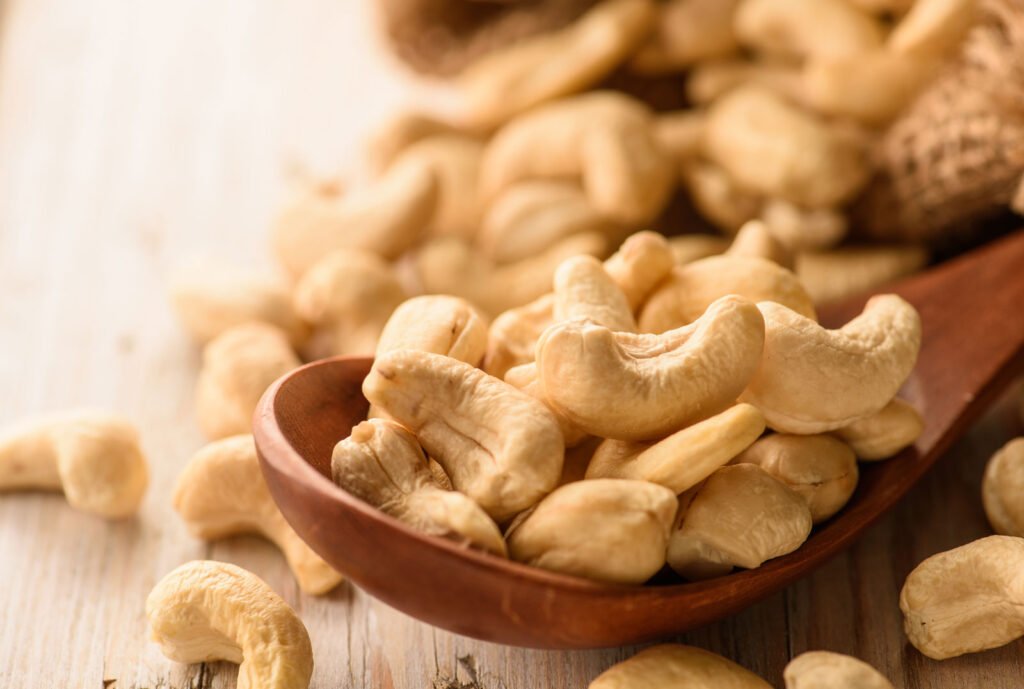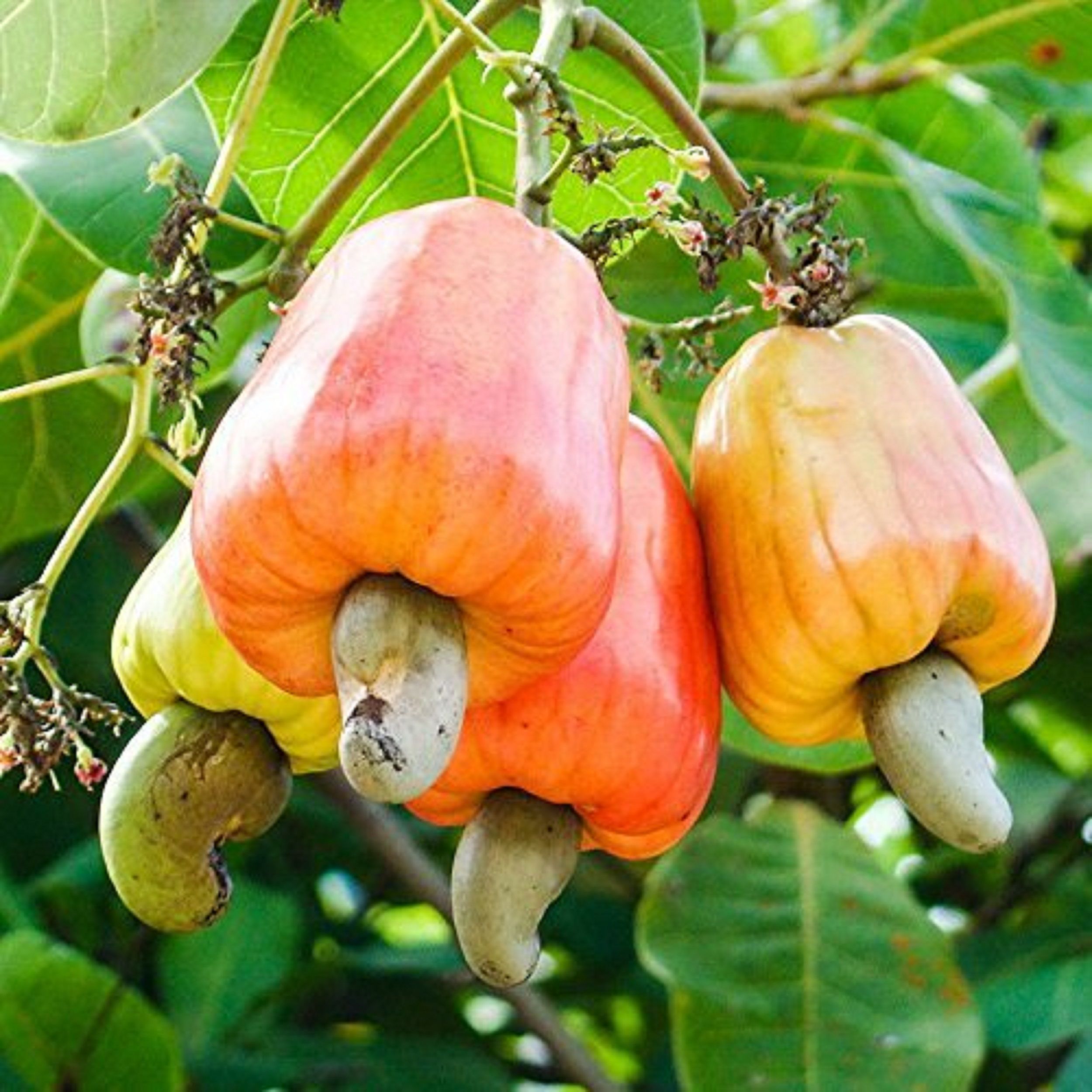The cashew is a fascinating agricultural product, celebrated not only for its edible nut but also for its distinctive fruit. Native to northeastern Brazil, the cashew (Anacardium occidentale) has traveled the world, becoming a vital crop in tropical regions such as India, Vietnam, and parts of Africa. Its unique properties and uses make it a subject of interest in both culinary and agricultural contexts.
The Dual Identity: Fruit and Nut
Cashews are often recognized for their kidney-shaped nuts, but many are unaware of the intriguing fruit that accompanies this nut. The cashew tree produces a fleshy, pear-shaped accessory fruit called the cashew apple, and at the end of this apple dangles the cashew nut encased in a hard shell.
Cashew Apple: The cashew apple is bright yellow to red and about 5-11 cm in length. It is juicy and has a sweet yet slightly astringent taste. In regions where cashews are grown, the apple is a popular treat. It is consumed fresh, used in beverages, or made into jams and chutneys. Despite its appealing flavor, the cashew apple remains relatively unknown outside these areas due to its perishable nature, making it difficult to transport.
Cashew Nut: The true star of the cashew tree is the nut. Each nut is encased in a double-layered shell that contains urushiol, a toxic substance also found in poison ivy. This necessitates careful processing to remove the shell and toxic resin, ensuring the nut is safe for consumption. Once processed, the cashew nut becomes a versatile and nutritious ingredient, celebrated for its creamy texture and rich flavor.
Nutritional Profile and Health Benefits
Cashews are not only delicious but also packed with nutrients. They are an excellent source of healthy fats, primarily monounsaturated and polyunsaturated fats, which are beneficial for heart health. They also provide significant amounts of protein, making them a valuable addition to vegetarian and vegan diets. Furthermore, cashews are rich in essential minerals such as magnesium, phosphorus, zinc, and iron, and they contain antioxidants that support overall health.
Regular consumption of cashews has been linked to various health benefits, including improved heart health, better blood sugar control, and weight management. The fiber content in cashews aids in digestion, while their healthy fat profile supports brain function and reduces inflammation.

Culinary Uses
The versatility of cashew nuts makes them a beloved ingredient in cuisines around the world. They can be eaten raw, roasted, or used in cooking and baking. Cashews are often incorporated into savory dishes such as curries, stir-fries, and salads, adding a satisfying crunch and creamy texture. In desserts, cashews are used in cookies, cakes, and as a base for dairy-free cheese and cream sauces, popular in vegan recipes.
Cashew butter and cashew milk are also gaining popularity as dairy alternatives, providing rich and creamy options for those with dietary restrictions. Cashew nuts can be ground into flour for gluten-free baking or used to make cashew cheese, a favorite among those seeking plant-based options.
Economic and Environmental Impact
The cashew industry is significant in many tropical countries, providing livelihoods for millions of farmers and workers. India and Vietnam are the largest producers and exporters of cashew nuts, with the industry contributing substantially to their economies. However, the cashew sector faces challenges, including labor-intensive harvesting and processing methods, price volatility, and the need for sustainable practices.
Sustainability concerns are increasingly addressed through initiatives aimed at improving farming techniques, reducing waste, and ensuring fair trade practices. Cashew processing also generates by-products such as cashew nut shell liquid (CNSL), which is used in industrial applications, adding value to the crop and supporting waste minimization.
Conclusion
The cashew is a remarkable fruit and nut that bridges the gap between tropical agriculture and global culinary traditions. Its dual nature as both a delicious nut and a flavorful fruit highlights its versatility and appeal. As demand for healthy, plant-based foods continues to rise, the cashew’s popularity is likely to grow, bringing with it opportunities for sustainable development and economic growth in producing regions. Whether enjoyed as a simple snack, a culinary ingredient, or a healthful addition to the diet, the cashew stands out as a true gem of the natural world.
Ajigofarms is a reliable global agricultural purchase sourcing with profound expertise in the manufacturing, and exportation of food crops. We are tested, and trusted suppliers of all kinds of cash crops and food crops. Our constant supply chain solution makes exporting easy, quick, and safe, we are identified with timeliness and meeting up with deadlines. Regardless of the region you are located in worldwide, you can reliably order your Agric products and be rest assured of successful delivery.




